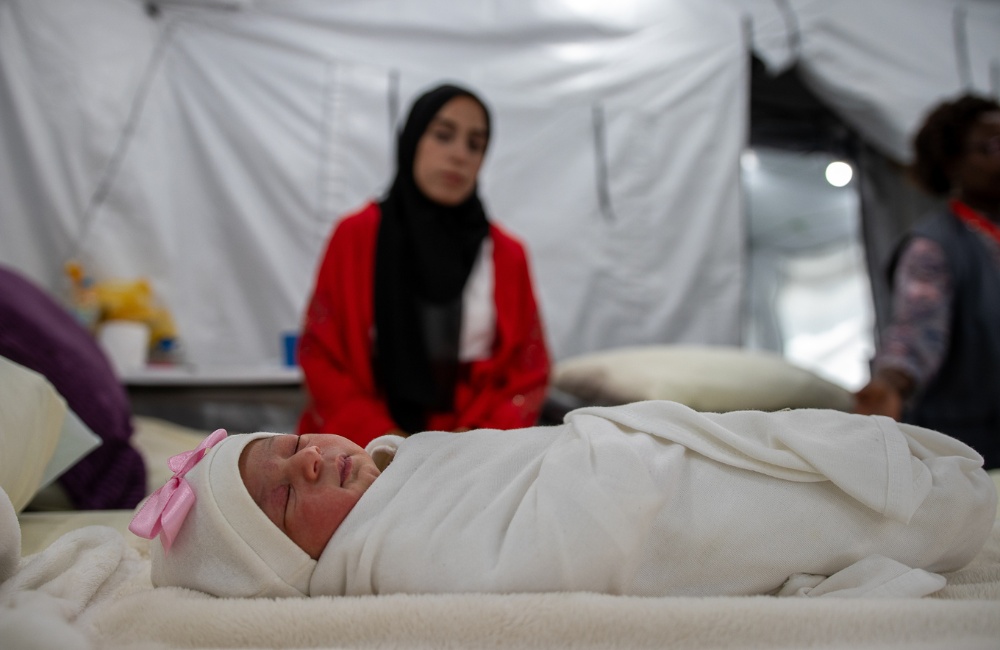A paediatric nurse shares her experience in a conflict zone
Becky Platt was part of Save the Children’s Emergency Health Unit deployed when conflict broke out in Gaza. It was not her first time to be assigned in a humanitarian crisis response, but nothing could have prepared her for her time in Gaza.
Here is Becky’s firsthand account of her experience …
“However much you've watched on the news about what it's like in Gaza, nothing really prepares you for what it feels like when you're there and just the kind of devastation that's everywhere … the number of people everywhere, the number of unaccompanied children, and the shelters that people were living in, it was like nothing I'd ever seen before. And even just down to piles of rubbish and kids picking through [them] and eating.
“There was just this constant sense of disbelief almost that humans were having to live like this.”
Healthcare access for pregnant women and children
Arriving in Gaza, it was apparent that a maternity hospital was a vital service that was very much needed.
“It’s a very young population with multiple pregnant women who need to deliver. [They] have reduced access to maternity care just because they've moved so many times. So much of the healthcare is just not available anymore because hospitals have been bombed.
“Being an infant in Gaza right now is much more dangerous … just because of the lack of access to maternity and antenatal care and feeding support.
“This is a country that previously had good access to healthcare. And we've now got people living in shelters and not knowing where the next meal's coming from, not knowing how long they're going to be there for. It's just devastating to see.”
A sign of hope amidst destruction
In the midst of conflict there are also moments of joy, especially with the birth of a baby. Baby Lana was one of the first births in a Save the Children maternity unit in the Gaza strip.

Lana’s birth gave hope amidst the destruction of conflict.
Photo: Sacha Myers / Save the Children.
Becky remembers that special time …
“It was a joyful occasion. It was like a bit of a party atmosphere in the tent. It was really exciting. And all of Lana's family were coming around.”
“In that tent, it was a little bubble of joy. Despite all of this stuff that was going on outside and around, I find it's a bit bittersweet because it's lovely and it's so joyful and so beautiful … but then you just don’t know what the future's going to hold ...
“What's life going to look like for her in a few months and a few years? I think it's really hard because there's this joy and heartache that go hand in hand.”
A life-changing experience
“The day after I got back home [to the UK], I went out for a walk with my son and I really just had a moment of, oh my goodness, I am actually out walking. We hadn't been able to go out and walk around at all [in Gaza] because it just wasn't considered to be safe... And I think we have so much freedom [here] that we don't really acknowledge. And so I think I've been sort of blown away by that as much as any of the things that I saw clinically. So in that way it's been a life-changing experience.
“It's easy sometimes when we are thinking about conflicts to get caught up in the numbers ... But actually in some ways, I don't think about the big numbers. I just think about what every individual number means. Every single one of a hundred thousand is one child who's been forever changed by this …”